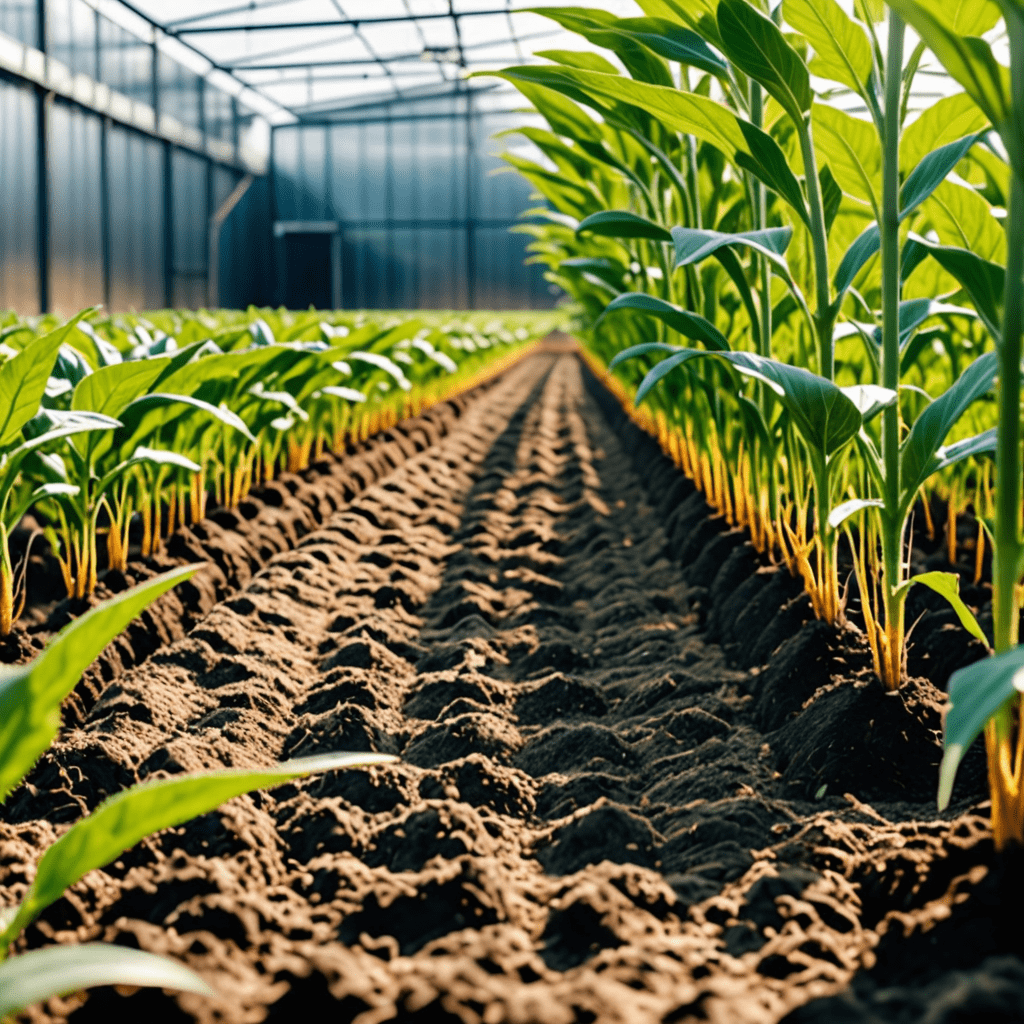Nanotechnology in Sustainable Agriculture: Eco-Friendly Farming with Nanotech
Introduction to Nanotechnology in Agriculture
Nanotechnology is revolutionizing sustainable agriculture practices by offering innovative solutions that promote eco-friendly farming. By harnessing the power of tiny particles and materials at the nanoscale, nanotech applications in agriculture are enhancing crop production, soil health, and pest management.
The Role of Nanoparticles in Farming
Nano-sized particles, such as nanoparticles, play a critical role in agriculture by improving nutrient delivery, enhancing soil structure, and increasing water retention. These nanoparticles can be engineered to release nutrients slowly, reducing the need for frequent fertilization and minimizing environmental impact.
Nanotech for Precision Agriculture
Precision agriculture involves targeted approaches to optimize crop yields while minimizing inputs. Nanotechnology enables precision farming by delivering pesticides, herbicides, and fertilizers directly to plants, reducing overall usage and maximizing efficacy. This approach helps farmers achieve better results with fewer resources.
Nanomaterials for Soil Remediation
Contaminated soils pose a significant challenge to sustainable agriculture. Nanomaterials, such as nanosponges and nanoclays, have the ability to absorb and immobilize pollutants, detoxifying the soil and making it suitable for cultivation. This remediation process is cost-effective and environmentally friendly.
Enhancing Plant Growth with Nanofertilizers
Nanofertilizers are designed to improve nutrient uptake and utilization by plants, resulting in enhanced growth and productivity. These nanoscale nutrient delivery systems enable targeted supplementation, ensuring that plants receive the necessary nutrients precisely when and where they are needed.
Nano-Sensors for Monitoring Crop Health
Monitoring the health and growth of crops is essential for sustainable farming. Nano-sensors provide real-time data on soil conditions, plant stress levels, and pest infestation, allowing farmers to make informed decisions promptly. This proactive approach helps prevent crop loss and optimize resource management.
The Future of Eco-Friendly Farming with Nanotechnology
As nanotechnology continues to advance, the future of sustainable agriculture looks promising. With ongoing research and development, nanotech solutions will further enhance crop resilience, improve resource efficiency, and promote environmentally friendly farming practices. Embracing nanotechnology in agriculture is key to achieving sustainable food production for a growing global population.
FAQs about Nanotechnology in Sustainable Agriculture
What is nanotechnology in sustainable agriculture?
Nanotechnology in sustainable agriculture involves the application of nanomaterials to enhance various agricultural practices like crop protection, nutrient delivery, and soil quality management. This cutting-edge approach aims to promote eco-friendly farming methods.
How does nanotechnology benefit sustainable agriculture?
Nanotechnology offers several benefits in sustainable agriculture such as improved crop yields, reduced reliance on chemical pesticides, enhanced nutrient absorption by plants, and efficient water management. It promotes environmentally friendly practices while optimizing agricultural productivity.
What are some examples of nanotechnology applications in agriculture?
Examples of nanotechnology applications in agriculture include nanoencapsulation for targeted delivery of nutrients and agrochemicals, nanosensors for monitoring soil conditions and plant health, and nano-enabled smart irrigation systems for water conservation. These innovations contribute to sustainable farming practices.
Is nanotechnology safe for use in agriculture?
Research indicates that when used responsibly, nanotechnology in agriculture is safe for both the environment and consumers. However, continued studies are essential to understand the long-term impacts of nanomaterials on ecosystems and human health, ensuring their sustainable integration into farming practices.



